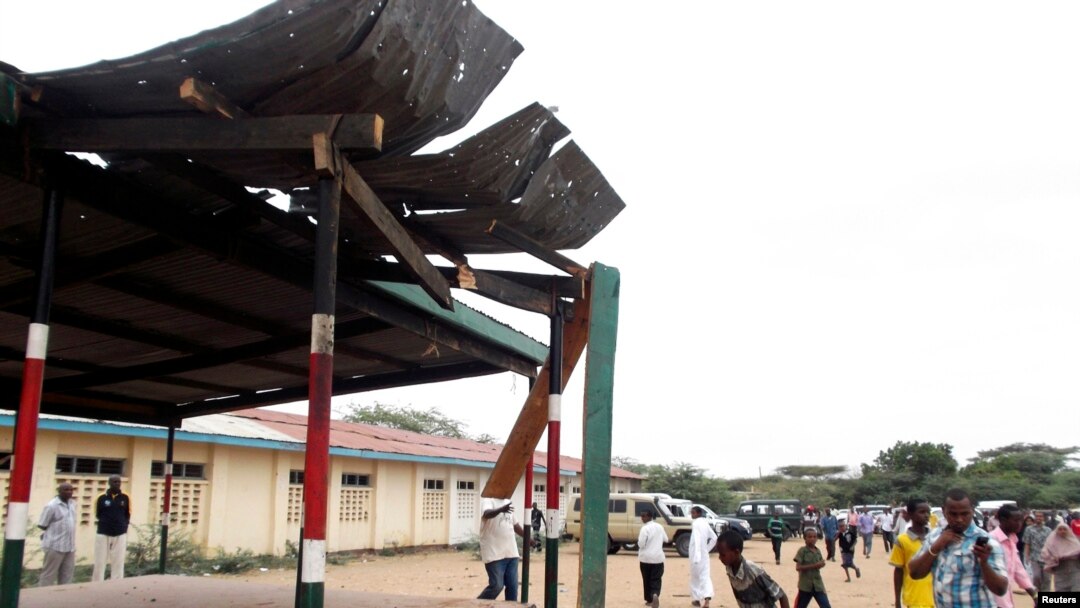The chairman of Kenya’s Law Society (KLS) says he is worried about rising ethnic tensions in parts of the country ahead of the March 4 general election.
“We have got this information from our Law Society branch offices and we have also gotten this information from the local media where when you look at some spots you will find that this ethnic group is more or less agitating and supporting one candidate as opposed to the other,” said Eric Mutua. “In some areas, some groups would invade the other group and there would be killings and burning of houses.”
Mutua called on the government to prosecute political leaders or individuals who incite the public to engage in acts of violence as next month’s vote approaches.
“We are alerting the government that this is an area you need to watch because it is the government which has the capacity to make sure that these kinds of tensions are brought down,” said the Law Society chief.
He said members of the KLS plan to organize education campaigns to make Kenyans aware of the need to ensure a peaceful vote.
Mutua’s comments came after the the National Cohesion and Integration Commission (NCIC) acknowledged rising tension between different communities in Naivasha in the run up to the poll. The NCIC has since sent officials to resolve tensions and any possible conflict there.
“There are some people who have purchased certain machetes from super markets in an unusual manner. We get worried because we want to tell the government that there is need now to watch this area and investigate so that we can arrest the situation there,” said Mutua.
Some Kenyans have expressed worry that heated political rhetoric during campaigning for the election could trigger violence.
“We are actually cautioning the political class, especially the presidential candidates, that they need to be careful and watch what they utter before the public. Because their words could be interpreted in a more dangerous manner, especially if they say that there is a plan to rig the election. That kind of pronouncement is very dangerous,” said Mutua.
The NCIC also says it has stepped up efforts to recommend the prosecution of groups or individuals who incite violence during the poll.
Four hundred monitors, 290 police officers and 110 volunteers from community-based organizations have been trained and will monitor hate speech, according to the NCIC.
Mutua says the government needs to take all necessary measures to prevent a repeat of the 2007-2008 post-election violence.
“We have got this information from our Law Society branch offices and we have also gotten this information from the local media where when you look at some spots you will find that this ethnic group is more or less agitating and supporting one candidate as opposed to the other,” said Eric Mutua. “In some areas, some groups would invade the other group and there would be killings and burning of houses.”
Mutua called on the government to prosecute political leaders or individuals who incite the public to engage in acts of violence as next month’s vote approaches.
“We are alerting the government that this is an area you need to watch because it is the government which has the capacity to make sure that these kinds of tensions are brought down,” said the Law Society chief.
He said members of the KLS plan to organize education campaigns to make Kenyans aware of the need to ensure a peaceful vote.
Mutua’s comments came after the the National Cohesion and Integration Commission (NCIC) acknowledged rising tension between different communities in Naivasha in the run up to the poll. The NCIC has since sent officials to resolve tensions and any possible conflict there.
“There are some people who have purchased certain machetes from super markets in an unusual manner. We get worried because we want to tell the government that there is need now to watch this area and investigate so that we can arrest the situation there,” said Mutua.
Some Kenyans have expressed worry that heated political rhetoric during campaigning for the election could trigger violence.
“We are actually cautioning the political class, especially the presidential candidates, that they need to be careful and watch what they utter before the public. Because their words could be interpreted in a more dangerous manner, especially if they say that there is a plan to rig the election. That kind of pronouncement is very dangerous,” said Mutua.
The NCIC also says it has stepped up efforts to recommend the prosecution of groups or individuals who incite violence during the poll.
Four hundred monitors, 290 police officers and 110 volunteers from community-based organizations have been trained and will monitor hate speech, according to the NCIC.
Mutua says the government needs to take all necessary measures to prevent a repeat of the 2007-2008 post-election violence.
Your browser doesn’t support HTML5
Clottey interview with Eric Mutua, chairman of Kenya’s Law Society (KLS)


